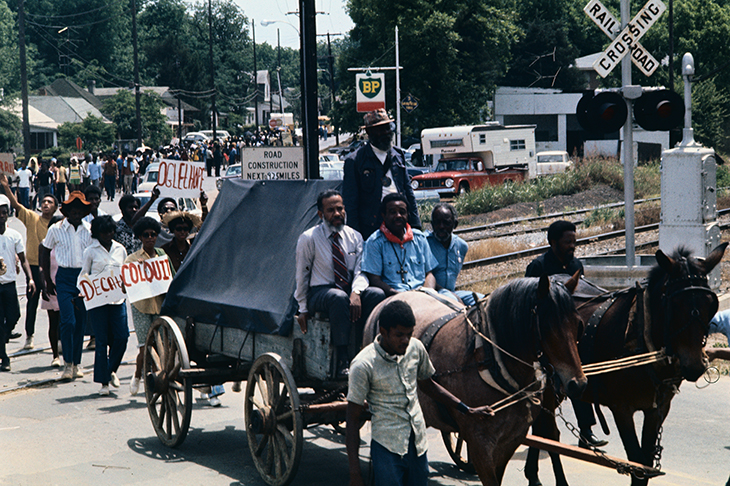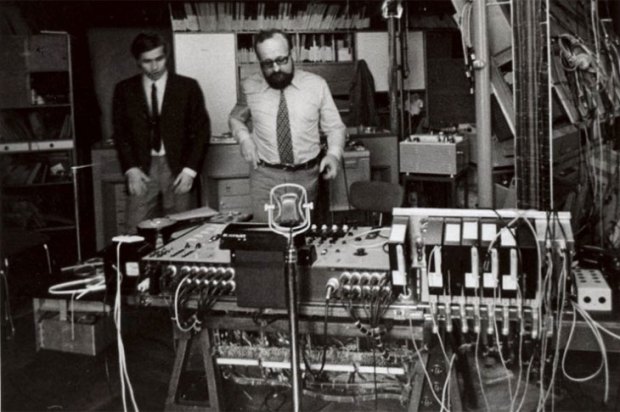To have been a black lawyer in the deep south of America in the early 1960s would have taken a level of courage well beyond the ordinary. Chevene Bowers King was just such a man. He could have worked in the desegregated north, but instead chose to risk his life in Georgia, defending black people imprisoned on trumped-up charges and organising non-violent demonstrations to end segregation. David Morley’s two-part play on Radio 4, The Trials of CB King, took us through the blatant racism, the everyday brutality and dangerous reality for the black citizens of Albany, Georgia, where the sheriff encouraged the police to beat up the innocent purely because of the colour of their skin. Those who dared to befriend black people or fight their cause could also end up literally under fire. King’s black sister-in-law loses her unborn child after being beaten in the stomach by the police for daring to visit young demonstrators who were being held without charge in the county jail. Another black man is accused of pulling a knife on the sheriff while in handcuffs and is then badly beaten. In spite of King’s efforts, he’s declared guilty by the all-white jury.
This kind of radio play, retelling history through drama, can be very effective, breathing life into the narrative arc. There’s no need to create a stylised tableau or a pageant of figures in period costume; the focus is on what people are saying, how they behave, and how as listeners we can connect with their stories. How could such hatred have taken root? And, perhaps more significantly, how could King have remained so restrained in the face of such unreasoning hostility.
‘Never lose your bearings,’ says King (played with measured dignity by Leo Wringer) to the young white privileged Yale student who goes down south as a civil-rights activist but has yet to understand how to survive in a town where such ignorant dogmatism operates as the rule of law. ‘Now is not the time for us to vent our spleen.’ King has education, as the play makes clear; the sheriff is virtually illiterate. He’s the character without hope. The black community, in contrast, is sustained and uplifted by faith, stronger than those who take up arms and demand violent action.
Marc Beeby’s production created real atmosphere, mostly through the discreet use of music — a bluesy guitar riff, a short line from a gospel hymn- — to evoke the steamy heat of Georgia, those tired days when tempers fray. Nothing was overstated. King always keeps his cool. When asked whether there will ever be a ‘negro’ president, he replies: ‘Electing one man is not going to change a culture.’ (King died in 1988.)
Laurence Grissell’s programmes usually play with ideas about listening, how radio taps into your innermost thoughts, your mind’s eye. How that direct connection is made. His new series on Radio 4, In My Head, uses binaural stereo (only achieved with headphones) to create a more immersive experience, taking us right inside the experience of being someone else, almost as if we are thinking their thoughts for them. The series gives us monologues by various people with out-of-the-ordinary occupations, talking us through the details of their day: the bomb-disposal expert in Bosnia who listens, oxymoronically, to heavy-metal music on his way to the next job, feeling the ground tentatively for what might lie underneath and then teasing the redundant ordnance to explode under his delicate direction. Or the deer-stalker who takes us right on to the moor (we can almost smell the heather in the air), where he shoots a stag and then eviscerates it before dragging it back off the hill to his Land Rover.
Less visceral, but no less vivid, was our outing with George, No. 1 among the paparazzi of London, who was on his way to Padstow in the hope of catching a shot of Fern Britton in her bikini. She never showed up. Second best would have been an appearance of the former PM, David Cameron. According to George, if Cameron had turned up on the beach in his swimming trunks clutching a surfing board and with his wife Samantha he could have made ‘an easy three grand’ by selling his pictures to the Mail.
I only caught one episode of the new Book at Bedtime on Radio 4 (produced by Eilidh McCreadie) but was hooked straightway. Kate Atkinson’s latest novel, Transcription, is set in postwar London where Juliet Armstrong works for the BBC as a producer of children’s radio, a job that somehow seems humdrum after her work for the war effort. On her way out to lunch from Broadcasting House she bumps into someone she knew in that past; someone from MI5 who refuses to acknowledge that he once knew her. Why? Who is he working for now? And what was Juliet really up to as she typed up perfect transcriptions of the conversations held in the next-door flat at Dolphin Square by the fifth columnists under surveillance. Fenella Woolgar reads, cleverly catching Juliet’s more youthful voice as she recalls that past life.
Got something to add? Join the discussion and comment below.
Get 10 issues for just $10
Subscribe to The Spectator Australia today for the next 10 magazine issues, plus full online access, for just $10.
You might disagree with half of it, but you’ll enjoy reading all of it. Try your first month for free, then just $2 a week for the remainder of your first year.














Comments
Don't miss out
Join the conversation with other Spectator Australia readers. Subscribe to leave a comment.
SUBSCRIBEAlready a subscriber? Log in